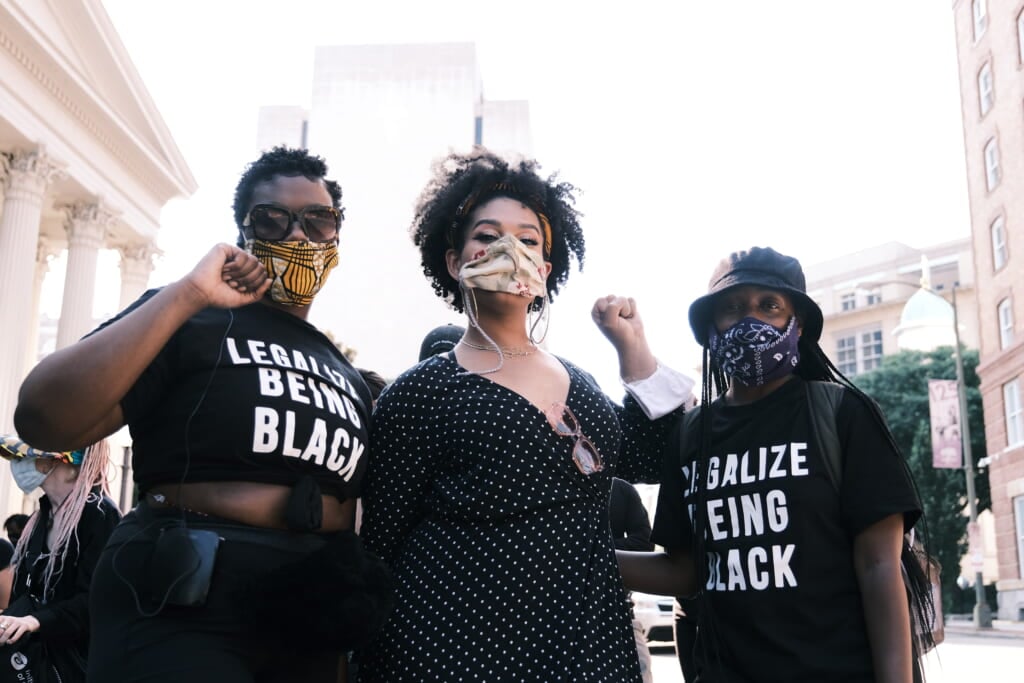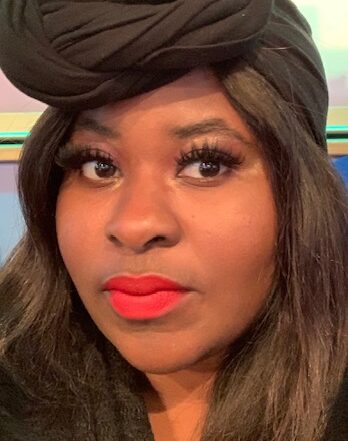The sad and exhausting pitfalls of white allyship
OPINION: Much can be gleaned from recent comments from Billie Jean King’s comments about Naomi Osaka and the revelation about actress Ellie Kemper’s ties to so-called racist ball
A year ago, I remember being struck by how many people were out marching for Black lives in the wake of George Floyd’s murder. It was reminiscent of the protests following the last administration’s inauguration.
The coronavirus and global pandemic were still relatively new. New York, where I live, bore the brunt of the virus initially; the ferocity scaring most of us into submission around new social norms like wearing masks. Many who could, fled the city; and of the many who did, most were white.
I was convinced that the scale of the protests was in direct response to our failed national response to COVID-19, coupled with our collective, centuries-long battle with racial injustice. What perhaps struck me a bit more, however, and gave me just a glimmer of hope, was the fact that so many white people were out protesting too — particularly white women, who formed chains of protection around Black protestors.

We know that there have always been white allies, or “good white folks” as some older Black folks might say. In many ways, the linchpin for Black Americans rests in the hands of white folks and what they choose to do (or not) with their own inherited sense of privilege, and the socio, political and economic implications that result.
For as much as they can help to course-correct and atone for their own history, white people, and in particular, white women, have also been some of the worst offenders and perpetrators in terms of backstabbing and betraying Black people. This occurs either in failing to acknowledge or own their own errors or in failing to lend their support when it’s needed most.
What Black and brown people need from our white allies is to see and acknowledge our pain — and take decided action to provide support. Take Naomi Osaka, the number two ranked and highest-paid women’s tennis player in the world, and her decisions first, not to speak to the press, and then, due to mounting pressure over said decision, to ultimately withdraw from the French Open.

At the beginning of the competition, Osaka issued a public statement outlining her reasons for not participating in post-match press events, knowing full well that she would be fined as a result and accepting that as a consequence.
What she did not agree to was the verbal chastising and trolling from tennis officials and others, like former tennis player Billie Jean King, that followed. Rather than stepping up and responding to the moment, taking the time for the teachable opportunity that it was, they further proved Osaka’s point by piling onto someone who is already suffering. “As professional athletes we have a responsibility to make ourselves available to the media,” said Billie Jean King.
This is an extremely privileged point of view; one that seems to assume that all interactions with the press — who are largely male and white — are more-or-less respectable and above-board. For many players and people of color however, they are not. Also, a person’s mental health concerns should always be taken very seriously.

Even everyday interactions are often tinged with hints of racial or prejudicial undertones. At times, the antagonism is blatantly overt. Seemingly innocuous actions, like touching a little Black girl’s hair — as U.S. House Speaker Nancy Pelosi recently did to Gianna Floyd — are microaggressions which, taken together, do take their toll.
I speak from personal experience. And while I’m not a professional athlete like Osaka, I can only imagine how this is further compounded by being in the public spotlight, especially at a young age, and especially when one has the onus of a multi-layered identity.
Perhaps this isn’t something which King feels she has personally experienced and therefore cannot fully empathize with or understand, and that’s OK. But, part of the problem is that so often white folks want to speak on something which they know little to nothing about. Silence, in this case, could’ve been the response. Not surprisingly, other more contemporary players, and not coincidentally, Black, like Serena and Venus Williams, have put their full support behind Osaka.
Another example of a white woman, who may now be exposed for the antithesis of allyship, is actress Ellie Kemper, notable for her roles as Erin in the hit series The Office, as well as Kimmy Schmidt in Netflix’s Unbreakable Kimmy Schmidt, which also stars Titus Burgess. It’s reported that in 1999, Ellie was crowned the Queen of Love and Beauty at the Veiled Prophet Fair in St. Louis, Missouri. And while there’s no official, direct connection between the Ku Klux Klan and the Veiled Prophet, their differences are hardly appreciable.
How then, does someone like a Kemper end up co-starring alongside someone who is both Black and gay, and has been outspoken in both of these areas?
Some may be trying to downplay the significance here, but the actress’ own lack of response is actually quite telling. Silence, in this case, is complicit.

Beyond these public, high-profile, troubling examples of failed white allyship, there are countless personal anecdotes I and so many other Black and brown people could share.
Recently, a friend and fellow New York City entrepreneur acquired a “free” space in Union Square to host a temporary pop-up shop for the summer. The space was acquired through an organization which purports to help artists and vendors. I say “free” because as the rest of the story illustrates, and as my parents have always said, “ain’t nothing in life free.”
Long-story short, a member of the building’s co-op board (a white woman) took issue with the store’s signage, and also took it upon herself to tell the collective of Black women running the store to take it down. There was, of course, confusion about who this woman was and why she was making such demands. The organization that had arranged for the “free” space demanded an apology from the Black women to the white woman, “for making her feel uncomfortable” or else they’d lose their space.
Of course, this organization is largely white-owned and operated, and they’ve actually since back-tracked. While some of the collective have decided to stay, likely because they’ve sunk costs into building out the temporary space, my friend, like Osaka, is staunch in her principled stance, and has decided to take her talents (and merchandise) elsewhere. You can support her in this here.
None of these examples are especially egregious, and yet, at least to me, that’s what makes them all that much more insidious. Black people constantly find themselves either having to acquiesce and make concessions, essentially told to “grin and bear it,” or simply choose to skip out and remove themselves from untenable situations, often sacrificing economic opportunities as a result. Neither option is fair.
About a year ago, my sister started a YouTube series called, “Yes, I am Black Woman, Yes I Matter.” In a previous piece, I wrote about how, on just her second event, she was viciously zoom-bombed, and how not even online spaces are safe for Black people. As part of her growing efforts and initiative, her organization, Black Women Matter, has now partnered with Givitas, a relatively new social media platform, centered around altruistic and reciprocal giving and receiving. Part of the mission behind Black Women Matter is to cultivate a truly safe space, online and otherwise, for Black women.

So much of what we’ve experienced as a nation and as a world over the past year plus has asked us to reassess and reevaluate: ourselves, the way we live our lives, our world, and how we treat it and one another. While I’m reminded that there’s promise (past progress tells me so) there are sometimes seemingly far many more pitfalls, including, too often, that of white allyship.
When not done with consistency and conviction, with active listening and earnest engagement, white allyship is often predicated upon complacency and can therefore become more of an impediment in already oppressive systems. Let’s not forget that as humans, we are blessed with the ability to be multifaceted. That on the one hand, we can own our histories without erasure or shame, and on the other, we can dream of and imagine a far-different reality with true equality for all.

Thameka Thompson has a B.A in African American Studies from Yale University. Based in the New York/New Jersey area, she is a freelance writer, and owns a spiritual practice.
The post The sad and exhausting pitfalls of white allyship appeared first on TheGrio.
from TheGrio https://ift.tt/3vVYhzv
No comments: